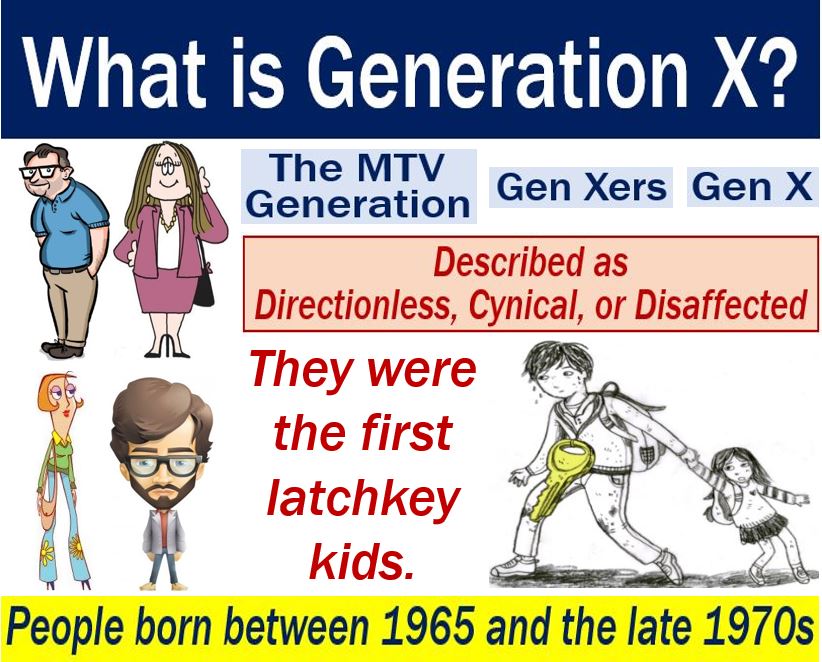Generation X is the generation born after Generation Jones, i.e., from the mid-1960s to late 1970s. We also call it Gen X and the people Gen Xers. People typically perceive Gen Xers as directionless, cynical, or disaffected. However, this stereotype perception, and does not necessarily mean that every Gen Xer is like that.
Many people dub Generation X members the ‘MTV Generation.’
Unlike their predecessors, this generation grew up with a good understanding of technology. They understand technology because they grew up with computers.
Generation X – latchkey kids
Sociologists say that this generation was the first generation of ‘latchkey kids.’ Latchkey kids return from school on their own because their parents both work full-time. Gen Xers were the first children to experience high levels of divorce and lots of daycare.
In the United States, twenty-nine percent of Gen Xers have a bachelor’s degree. Therefore, they have the highest academic levels of any generation in the country.

Generation X – term’s origin
The term had been used even before Gen Xers ever existed. In the 1950s, Robert Capa, a Hungarian photographer, wrote a photo-essay about young people who grew up immediately following WWII. He called them Generation X.
British musician Billy Idol used the term for the name of a punk rock band.
The term, with its modern meaning, emerged when Douglas Coupland published the novel Generation X: Tales for an Accelerated Culture.’
Coupland is a German-born Canadian novelist and artist. In the novel, a group of young people exchange heartfelt stories about themselves. They also tell each other stories that they created.
Generation X – growing influence
In the United States, 65.8 million people in the total workforce will be Generation X members by 2018.
This generation marks the decline in fertility after the baby boom. However, by 2028, Gen Xers will outnumber Baby Boomers in the US. In fact, they will outnumber the Boomers globally. Baby Boomers were born during the two decades following WWII, i.e., during the baby boom.
Millennials pushed aside Generation in 2015 to represent the largest percentage of the workforce. ‘Millennials’ refers to people born from the early 1980s to the mid-1990s. We also refer to Millennials as ‘Generation Y.’ However, the impact of Gen Xers is considerable.
